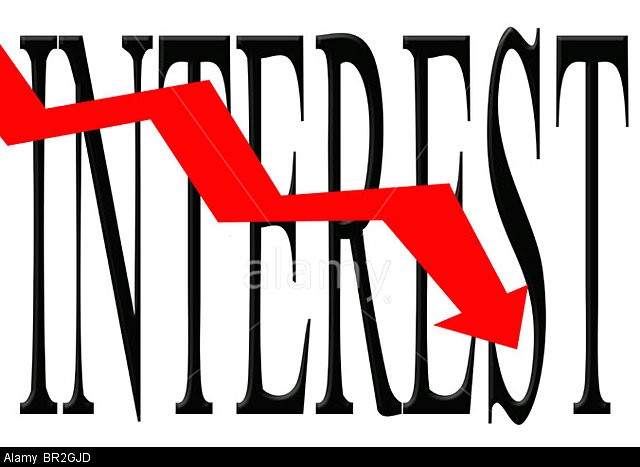Concept Interest Rates
Post on: 24 Июль, 2015 No Comment

Contents
This article describes the impact of interest rates. A related concept is the Yield Curve .
An interest rate is the cost of borrowing money. Among the many industries affected by fluctuations in interest rates, real estate and banking are perhaps the most directly impacted. When interest rates increase, borrowing becomes more expensive, dampening consumer demand for mortgages and other loan products and negatively affecting residential real estate prices. Rising interest rates can also lead to increased default rates, as holders of adjustable rate debt find themselves faced with higher payments. Vendors of mortgage backed securities, which consist of bundled mortgages, will see their ability to monetize the securities lessens as a result of the deterioration of the quality of the underlying asset.
Why Interest Rates Rise and Fall
Changes in Money Demand alter the Interest Rate
Companies that are hurt by rising interest rates
- Home Depot (HD) and Lowe’s Companies (LOW) which sell home construction and improvement materials are hurt. When interest rates rise fewer homes are built and fewer home improvement projects are undertaken. Refinancing, a major source of funds for home improvement projects, also becomes more expensive. However, individuals may decide to remodel their current homes rather than purchasing new
- Investment Banks like Goldman Sachs Group (GS) and Morgan Stanley (MS) derive a substantial portion of their revenue from the facilitation of debt issuance by companies and the sale of mortgage backed securities. In a rising interest rate environment the demand for both products diminishes.
- Vendors of wireless internet services such as Time Warner Cable and Comcast (CMCSA) are harmed by rising interest rates because higher interest rates typically result in lower levels of new home construction. Given the high level of penetration in the existing homes for internet and cable, new home construction represents a critical driver of internet and cable sales.
- Toll Brothers. Lennar Corp.. and Pulte Homes are all leading companies in the residential construction industry. Decreased home construction would harm companies such as these due to the reduced demand for their products.
- Sears Holdings. Whirlpool. General Electric. and other appliance manufacturers would likely see decreased demand for home appliances as a result of falling new home construction.
- Plum Creek Timber Company. Weyerhaeuser. and Louisiana-Pacific. as well as other producers of lumber and other wood-based building materials, would be hurt by falling new home construction in a rising interest rate environment.
- Black & Decker and other companies that manufacture construction tools are largely dependent on new home construction for product demand growth. Lower rates of residential construction would hurt companies such as BDK.
- Real Estate Investment Trusts (REITs ) such as Vornado Realty Trust (VNO). EQUITY RESIDENTIAL (EQR). Apartment Investment and Management Company (AIV). BRE Properties (BRE). Camden Property Trust (CPT). United Dominion Realty Trust (UDR). Brandywine Realty Trust (BDN). and Liberty Property Trust (LRY) are hurt by rising interest rates since it becomes more difficult to sell real estate and likewise alternative investments such as bonds become more attractive relative to real estate, so real estate prices tend to stagnate.
- Fidelity National Financial (FNF). First American (FAF). and other Title Insurance underwriting companies are hurt by rising interest rates because as fewer real estate properties are sold, fewer Title Insurance policies can be sold, reducing the revenues for companies dependent on premiums from issuing Title Insurance policies.
- Companies that have significant amounts of debt are hurt by higher interest rates, which force the company to spend more money each year to repay their debt. Additionally, companies may find it difficult to refinance their debt if interest rates rise. However, if they issued long-term debt at low rates, they could definitely benefit from rising rates by paying lower interest on debt than their competitors who may issue debt at much higher rates.
Companies that Benefit from Rising Interest Rates
- Large depository institutions suchs as Bank of America, JP Morgan Chase and Citibank may benefit from rising rates when the shape of the Yield Curve becomes steep, i.e. when the difference between short term interest rates and long term interest rates is large. Depository institutions make money by borrowing short and lending long; they collect the spread in between. When the spread is large, their net interest margin increases as do profits.
- Online brokers may be helped by rising interest rates because they benefit from higher net interest margins on deposit accounts. It should be noted, however, that these companies may be hurt if higher rates result in depressed market activity. Companies in this category include Charles Schwab (SCHW). E*TRADE Financial (ETFC) and TD Ameritrade Holding (AMTD) etc.
- Insurance companies may also benefit from rising interest rates, because much of their profit is earned on the float, the period between when premiums are collected and claims paid out. During this time, insurers invest the premium. Rising interest rates imply a higher return on bonds, one kind of investment, although higher rates lower the value of bonds currently in their portfolio. Large home insurers such as Allstate (ALL) benefit more than do smaller auto insurers like Progressive (PGR) or Geico .














